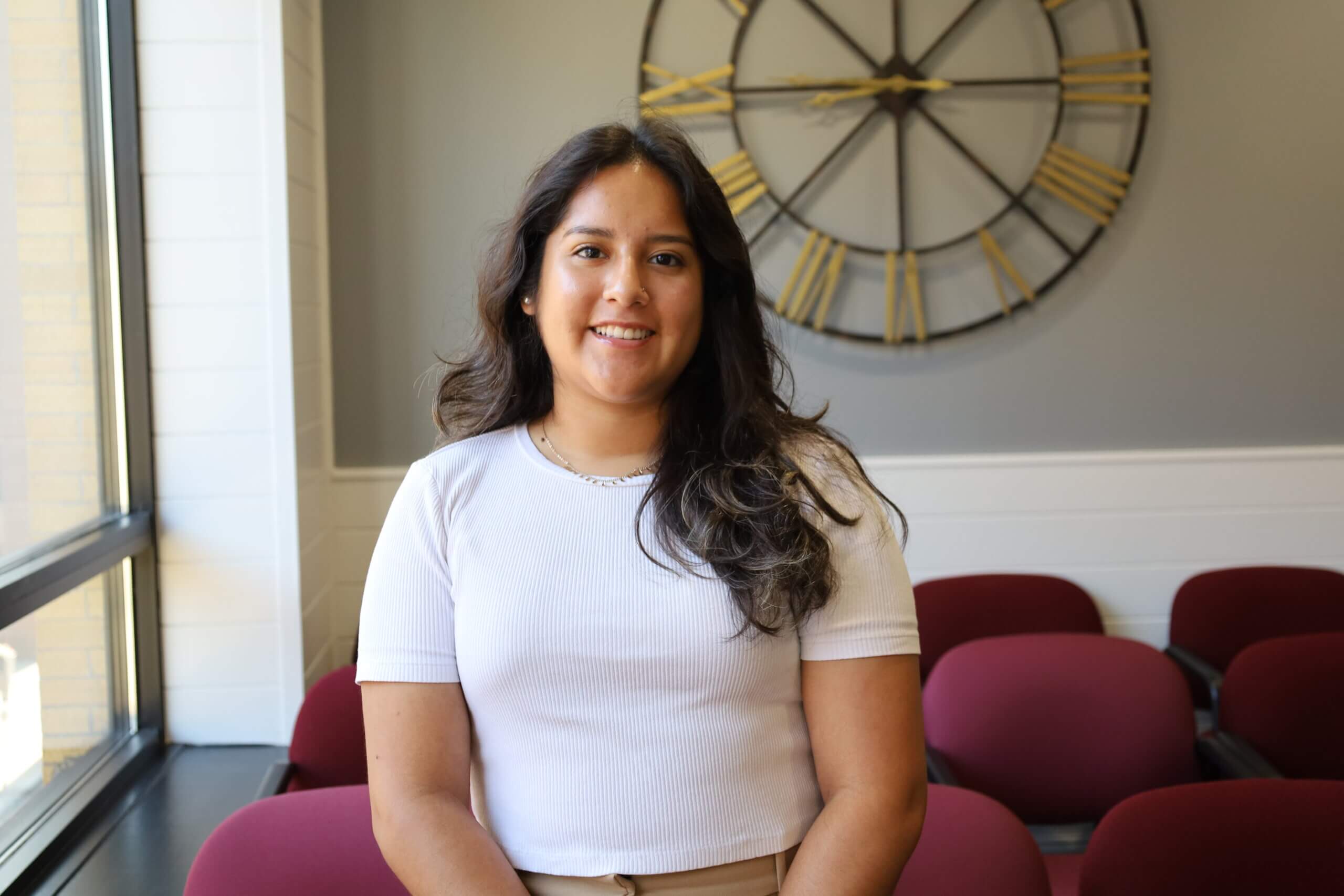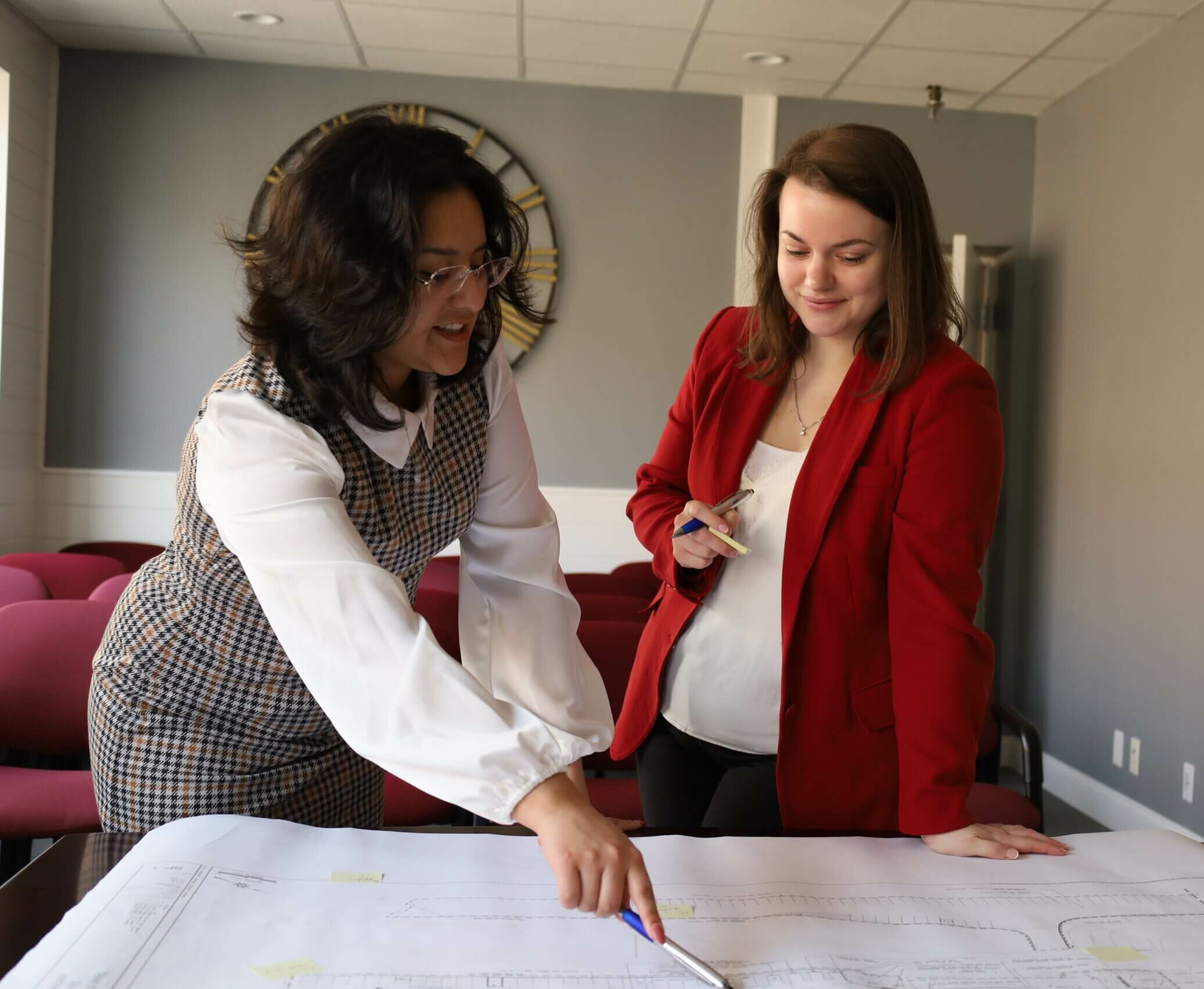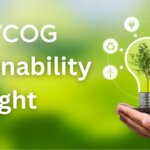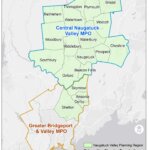
Driven by a passion for sustainable development and community-driven approaches, Emely Ricci is a dedicated Community Planner at the NVCOG. Emely grew up in Shelton, CT, and is a 2023 graduate of UConn’s Master’s in Public Administration program. She brings her expertise to lead various initiatives from open space inventory research to expanding education materials on accessibility in planning. Read on for a glimpse into Emely’s background and commitment to creating positive change in the region.
A Conversation with Emely Ricci
Written by Molly Johnson, Community Planner
Q: What inspired you to pursue a career in planning, and how did you end up working at the NVCOG?
I have always been committed to the environment and ensuring diverse voices have a seat at the table. Initially, I saw myself originally working at the State level for an organization such as DEEP. However, my MPA program taught me about the various ways I could engage in this work, including urban planning. It was then that I saw the planning field as a potential career path. I found that regional planning connects the local level to the state level on a range of issues, providing a way to integrate research and give back to the community.
Interestingly, Savannah-Nicole Villalba, AICP, the Community Planning Director, was one of the guest lecturers in my class, and she really inspired me. I approached her after class and asked her questions about how the tools and theories worked in real life. She even invited me for a visit to the NVCOG. Ultimately, those experiences transitioned me from the classroom into this exciting profession.
Q: What are some personal values or principles that guide your decision-making as a planner, especially when dealing with complex issues?
Flexibility is an important value in my work. For example, I am supporting the Town of Thomaston with their Plan of Conservation and Development update, which addresses topics such as economic development, environmental, transportation, open space, housing, land use, and utilities and involves many stakeholders. I believe that being flexible, genuine and open-minded to stakeholder feedback helps us make connections between groups to identify their intersecting goals and priorities.
In terms of principles, I focus on how we can all move together and collaborate as a region. I aim to promote a regional narrative and connect municipalities, regardless of their locations and sizes, with one another. This way we can identify how they can support each other, and foster intermunicipal relationships. At the end of the day, I work to create connections between communities to find potential for collaboration and build bridges.
Q: Can you share any standout experiences or insights from your time in this role that you believe are important to share with the audience?
I am fairly new to this position, but I have gained a lot of insight from meeting other land use staff. I have been fortunate to meet people in the region through our commissioner training days, town visits, POCD meetings, regional planning commission meetings and more. I appreciate being able to see the municipal internal workings and how they translate to external project implementation. It’s fascinating to witness the progression of so many projects even in such a short period of time.
I have heard people say that local development takes a long time. However, in my role, I can really see how the small things, in between the big projects, are what really matter. I am inspired by how municipalities serve as centers of community. I enjoy getting to know the municipalities for their individual uniqueness, and I am excited about the opportunity to get to work with each of them one-on-one.
Q: Outside of your role, do you have any personal interests or hobbies that you feel connect with or influence your work at the NVCOG?
For a few years now, I have been really into gardening. My grandmother comes from Peru, a very rural community in the Andes Mountain region, where gardening was a significant part of her life there. Fast forward to middle and high school for me, I also started getting into gardening. I would say “let’s buy some green peas seeds and see how it goes”. During the pandemic, my father and I established a formal garden, sparking my interest in agriculture, food, family, culture, and community, including aspects of food sovereignty and accessibility.
It helps me to see the value of community and the power it has to resolve conflicts and celebrate successes. Gardening’s process mirrors my nature – invested in projects and community. In my work with Thomaston on my first POCD, I want them to reap the bounty of their hard work on this effort.
Q: What message would you like to share with your fellow land use professionals and colleagues in the region?
I hope to meet them one day, broaden my connections and keep in touch to learn where we can connect on projects. As a newer planner, I see all land use professionals and colleagues as potential mentors and I want to learn from them, the tools they have, and the knowledge they’ve acquired.
Q: What is a current planning project that you’re working on that you are excited about?
At the NVCOG the Open Space Inventory project involves identifying the level of open space protection and access in our region. As a researcher, I verify the information in each municipality’s open space database. Our goal is to publish an updated map of open space in the region, serving as a starting point for creating an Open Space Plan.
This data provides insights into the distribution of recreational spaces, agriculture, and conservation areas. It helps interested municipalities identify opportunities to increase open space in their communities. Through visits, file and map reviews, and meetings with municipal staff and conservation commissions, I gain perspective on how we can help communities make this information accessible to the public and expand its access.
Q: What has been your favorite project to work on as planner? Why?
There are so many projects that we’ve done so far, this is hard to choose. Currently I’m focused on organizing the Accessibility Lunch & Learn which will be held on April 5, 2024, from 10:30 am to 12:00 pm at the NVCOG Offices. Simultaneously, I’m on the home stretch of finishing an accessibility resource guide. I’m diving headfirst into it and gaining valuable insights that fill gaps in my knowledge. I am excited to apply these learnings to my planning strategies and outreach efforts to municipal land use staff. As a lifelong learner, delving into accessibility has been enriching and rewarding.



